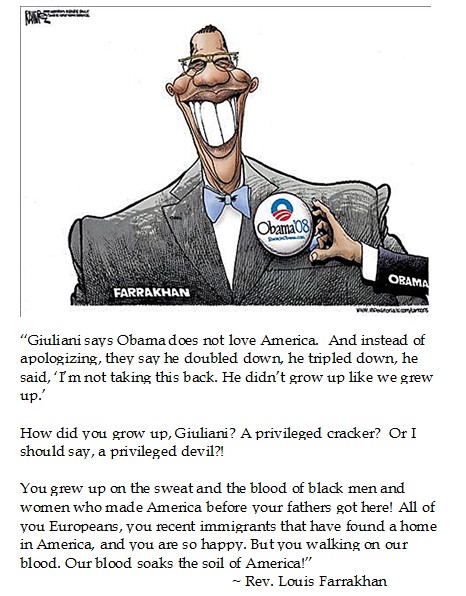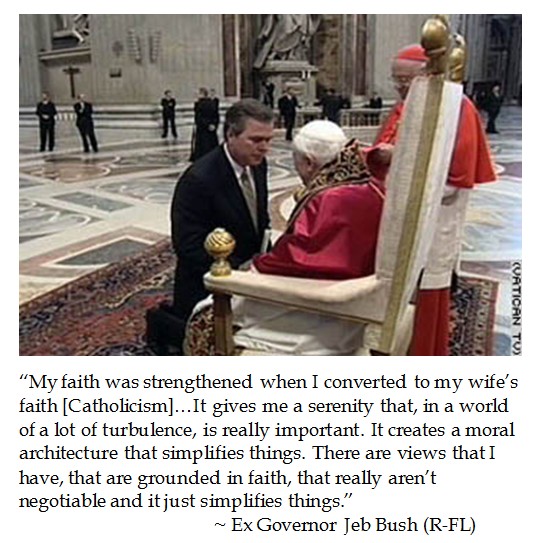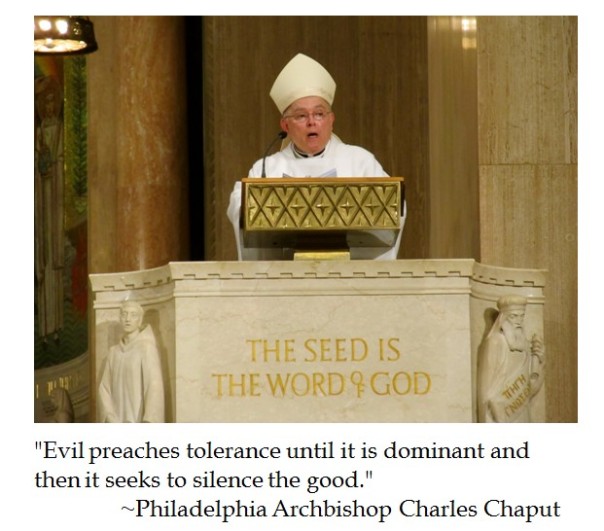Friday, February 27, 2015
Thursday, February 26, 2015
Tuesday, February 24, 2015
On Assessing Religious Extremism and Apocalyptic Eschatology

The Reverend Louis Farrakhan, the leader of the Nation of Islam in America, took umbrage at Rudy Giuliani's assessment of Barack Obama's formative years. In response, Farrakhan launched into a pejorative racial ad hominem attack on America's Mayor as well as all Americans of European descent.
This invective is rather ironic as President Obama's lineage does not include ancestry of slavery. Barack Hussein Obama, Sr. was a Kenyan and Stanley Ann Dunham was a white woman hailing from Wichita, Kansas. So the Reverend Farrakhan is conflating the struggle against someone who neither suffered from the disadvantages of slavery nor really lived in society which did not seek to redress those iniquities.
Rudy Giuliani could point to Barack Obama's two autobiographies, which chronicle how the future President was raised in Indonesia during formative years in which the love of country tended to be instilled.
Where was Louis Farrakhan drawing for his assessments? Well, it seems that the Rev. Farrakhan has again shifted from knowing Issa (Jesus) better than Christians back to a ministry of rage with a racially apocalyptic eschatology.
Last week, the White House conducted a three day summit on Countering Violent Extremism, which contorted itself so as not to associate religious motivations to terrorism, especially towards Islam. However, at the same time voices from the Obama Administration have been quick to point out the Lord's Resistance Army in Central Africa as an example of Christian militant terrorism. And a 2014 PC DOD presentation listed Catholics, Mormons, Orthodox Jews, evangelical Christians and Islamaphobes along with Al Qaeda as examples of "extremists groups".
No wonder why we currently have such a whacked weltanschauung in the District of Calamity (sic).
h/t: Michael Ramirez
Monday, February 23, 2015
Pope Francis on Lent
Pope Francis used his Angelus prayer and reflection at St. Peters Square to recognize the spiritual combat which the Church Militant is enlisted to engage in during Lent.
[T]oday is the first Sunday of this liturgical time that makes reference to the 40 days Jesus spent in the desert, after his baptism in the Jordan River. In today's Gospel, St. Mark writes: "The Spirit drove Jesus out into the desert, and he remained in the desert for forty days, tempted by Satan. He was among wild beasts, and the angels ministered to him" (1,12-13). With these simple words, the evangelist describes the test voluntarily faced by Jesus, before beginning his Messianic mission.
It is a test in which the Lord leaves victorious and that prepares Him to announce the Gospel of the Kingdom of God. He, in those 40 days of solitude, confronted Satan "in close combat", He unmasks his temptations and conquers him. And through Him, we have all conquered but we must protect this victory in our daily lives.
The Church reminds us of that mystery at the beginning of Lent, so that it may give us the perspective and the meaning of this time, which is a time of combat. Lent is time of combat! A spiritual combat against the spirit of evil (cfr. Collective Prayer of Ash Wednesday). And while we cross the Lenten "desert", we have our gazed fixed upon Easter, which is the definitive victory of Jesus against the Evil One, against sin and against death. This is the meaning of this first Sunday of Lent: to place ourselves decisively on the path of Jesus, the road that leads to life. To look at Jesus. Look at what Jesus has done and go with Him.
This path of Jesus passes through the desert. The desert is the place where the voice of God and the voice of the tempter can be heard. In the noise, in the confusion, this cannot be done; only superficial voices can be heard. Instead we can go deeper in the desert, where our destiny is truly played out, life or death. And how do we hear the voice of God? We hear it in his Word. For this reason, it is important to know Scripture, because otherwise we do not know how to respond to the attacks of the evil one. And here I would like to return to my advice of reading the Gospel every day. Read the Gospel every day! Meditate on it for a little while, for 10 minutes. And also to carry it with you in your pocket or your purse. But always have the Gospel in hand. The Lenten desert helps us to say no to worldliness, to the "idols", it helps us to make courageous choices in accordance with the Gospel and to strengthen solidarity among the brothers.
Now let us enter into the desert without fear, because we are not alone: we are with Jesus, with the Father and with the Holy Spirit. In fact, as it was for Jesus, it is the Holy Spirit who guides us on the Lenten path; that same Spirit that descended upon Jesus and that has been given to us in Baptism.
Lent, therefore is an appropriate time that should lead us to be ever more aware of how much the Holy Spirit, received in Baptism, has worked and can work in us. And in the end of the Lenten itinerary, in the Easter Vigil, we can renew with greater awareness the Baptismal covenant and the commitments that flow from it.
h/t: Zenit













